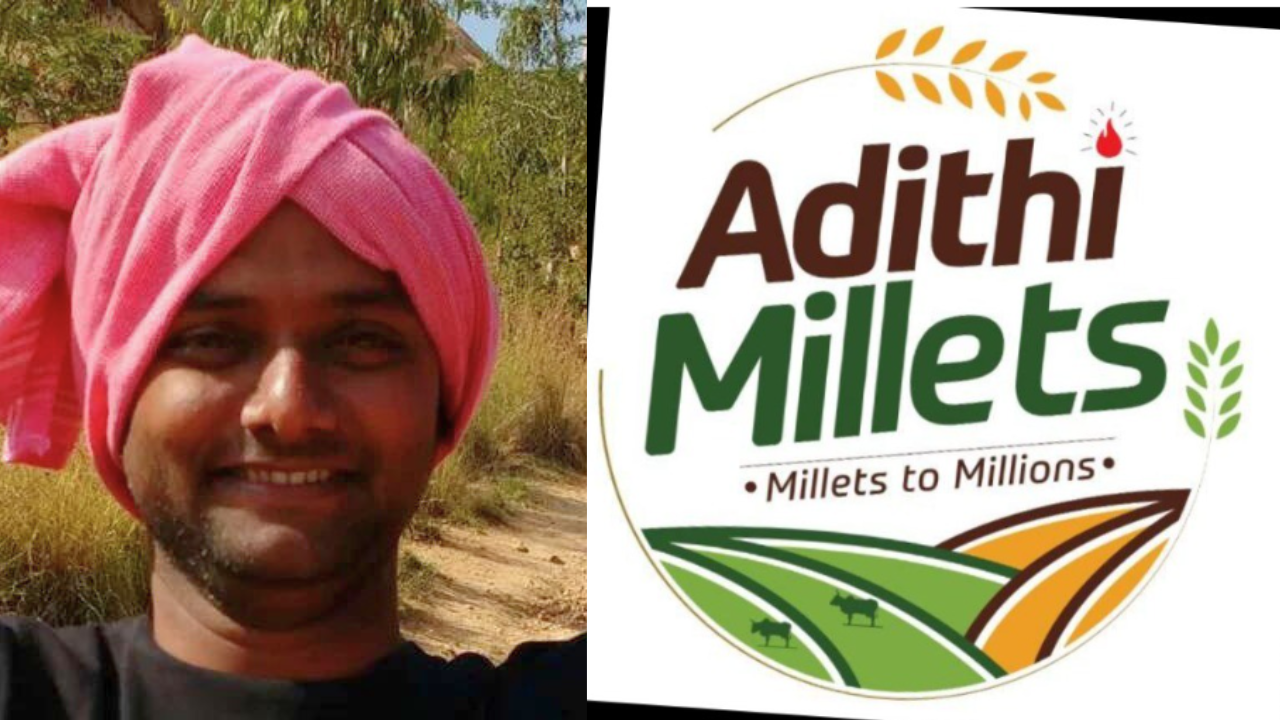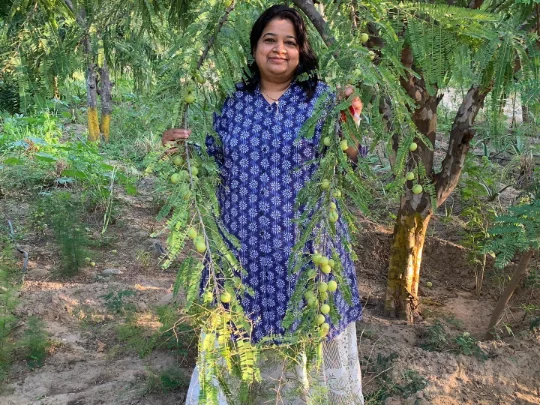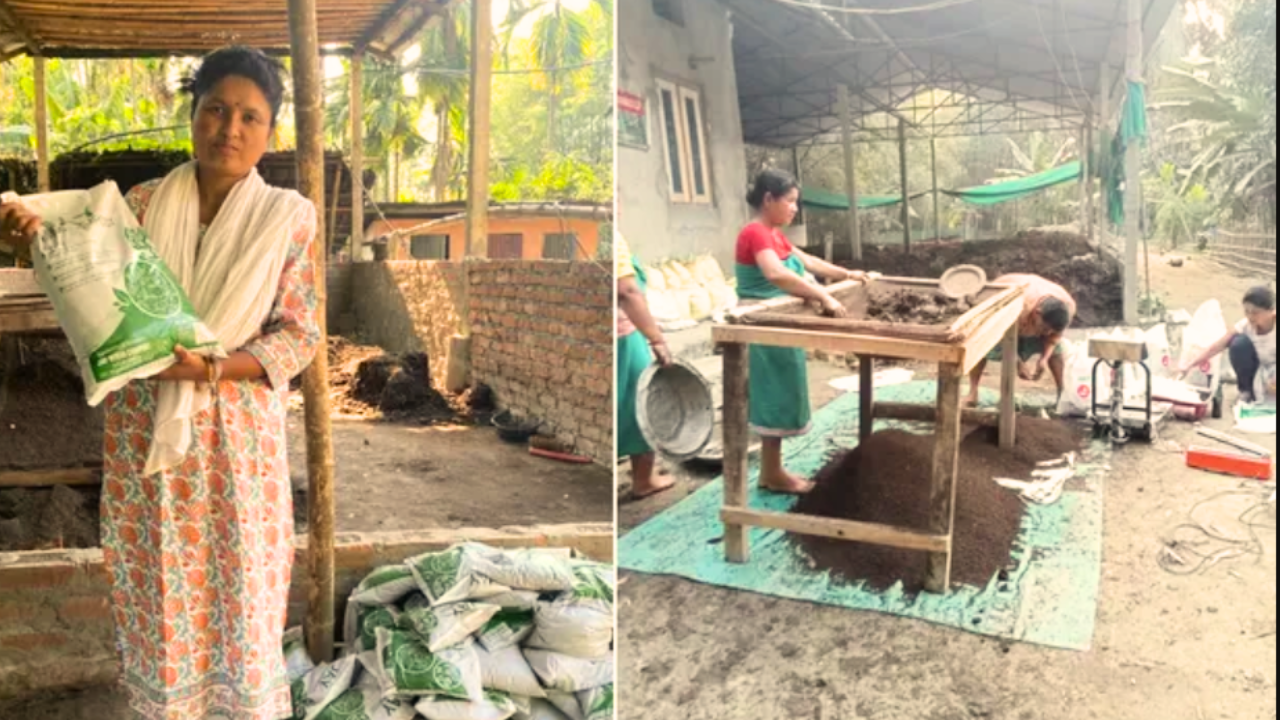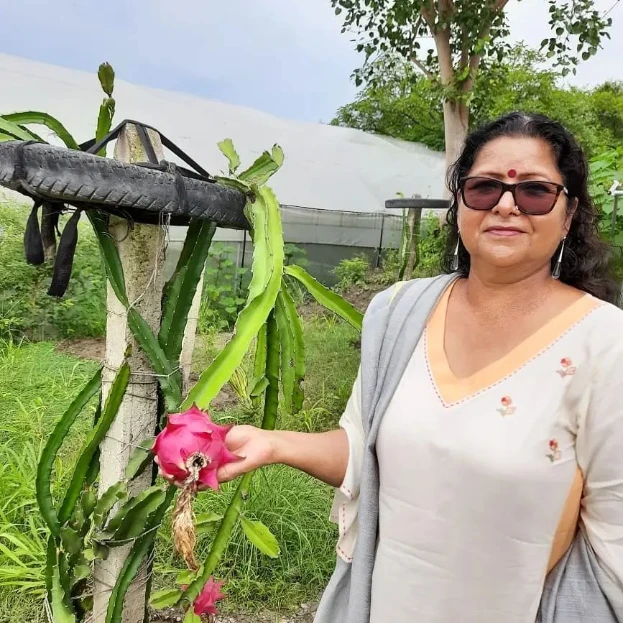Suresh Devang, an IT professional living in California, surprised his parents when he shared his plan to quit his job and become a full-time organic farmer in India. Instead of receiving support, he faced objections from his family. They couldn’t understand why someone in a high-ranking position would leave it all behind for a risky profession like farming.
For many days, the 48-year-old talked to his wife and parents about successful organic farmers’ stories, hoping they would at least consider his decision. However, the issue of farmer suicides and agricultural debts in India is so serious that even now, four years later, despite his successful farming journey and good profits, his parents still aren’t completely on board. Nevertheless, Devang has discovered his true passion.
Transitioning from an Engineering Career to Embrace Organic Farming
In 2016, Devang bought a 6-acre piece of farmland. A year later, he relocated to Pura village in Mysuru’s HD Kote taluk.
But what led a software engineer to give up a comfortable and luxurious life to pursue a profession he had limited experience in?
“It was a mix of different factors that encouraged me to leave my job and come back to India. I came across the story of an elderly Indian woman who created a forest without expecting anything in return. While I felt really proud of her, it also served as a turning point for me,” says Devang, speaking with The Better India.
Devang comes from a farming family and grew up eating food that was free from chemicals. Among the many things he left behind from his childhood, the joy of consuming fresh food was one of them. He came to realize the benefits of organic food, which prompted his interest.
“We all desire to eat healthy food, but not many are willing to cultivate it. Some studies I read even highlighted how we suffer from lifestyle-related illnesses at a young age due to unhealthy eating. All the articles about farming I read in my leisure time motivated me to reconnect with my agricultural roots,” he adds.
Embarking on Farming During Pura’s Battle with a Drought
When Devang mustered up the courage to make India his home, the region of Pura was grappling with a severe drought. This unfortunate situation led distressed farmers to seek work in other places due to the lack of opportunities.
Despite facing discouragement from his family, friends, and even mockery from fellow farmers, the drought didn’t deter Devang entirely, though it did shake his determination. He persevered through these challenges and used the drought as an opportunity to make improvements. Devang decided to take action by employing the farmers who chose to remain in the area, thereby providing them with an alternative source of income.
During this period, he initiated a few transformative projects. One of these was the creation of a farm pond, measuring 15 by 15 feet, with the impressive capacity to store 1.25 lakh liters of rainwater. Additionally, he engineered a manhole adjacent to a borewell to enhance groundwater replenishment. Within this manhole, he strategically placed various-sized pebbles to filter the incoming rainwater.
In the midst of these endeavors, Devang also dedicated time to interact with fellow farmers and officials from the Mysuru agriculture and horticulture department. This collaborative approach allowed him to gather knowledge about innovative farming techniques. Among the array of options, Devang opted for Integrated Farm Management (IFM) as his preferred method for ensuring sustainable farming practices.
Delving deeper into the concept, he explains, “We establish a cycle on our agricultural land, where leftover crop materials are given to the animals. In turn, the waste produced by these animals serves as an organic fertilizer that nurtures our crops. To put it simply, we’re reusing waste to create something valuable.”
Advantages of Organic Farming: Cultivating Nutritious Food Throughout All Seasons
For new entrepreneurs, keeping a business going even when faced with failures and setbacks is incredibly important. That’s why Devang decided to produce food throughout the year instead of just during specific seasons.
To make the most of his land, Devang used a clever technique called intercropping, where he grew two or more different plants in the same area. He carefully planned out which short-term and long-term vegetables, crops, and shrubs he could grow on his farm.
He got organic seeds from different nurseries across India and got to work. He dug trenches across his land and placed organic waste in them before covering them up. He says, “Trenches hold onto moisture in the soil for longer, allow only partial sunlight, and prevent soil erosion when it rains.”
Here’s how Devang set up his intercropping method:
- He planted a coconut tree at each of the four corners of his field, about 40 feet apart.
- Between each pair of coconut trees, he planted 100 lemon trees.
- Then, at intervals of eight feet between the lemon trees, he added banana trees.
- The spaces between the banana plants were filled with other plants like chillies, beans, marigold, medicinal plants, leafy greens, and other vegetables.
- Since the plants between the banana trees only take about three months to grow, he can replace them with new vegetables in each cycle.
Explaining why he designed his farm this way, Devang says, “Coconut trees produce coconuts every 5-6 years, while lemon trees take three years to yield lemons. So, I needed short-term veggies to sustain myself.”
According to Devang, one major benefit of this farming approach is water conservation. “When I water the outer trees, the excess water flows through the middle, watering the vegetables. This way, I save up to 50 percent of water every time I irrigate the field.”
In another part of his 11-acre plot, Devang also grows rainfed crops like millets, ragi, rice, and maize. This adds to the variety of crops he can harvest.
Earning Affection and Recognition
Devang was recently honored with the ‘Best District Farmer’ award by the University of Agricultural Sciences, Bengaluru, for his innovative farming techniques. His farm yields 10-15 quintals of vegetables and 40 tonnes of bananas annually, bringing in profits of about Rs 6 lakhs.
To sell his produce, Devang has partnered with local vegetable vendors, organic food stores, and companies across the state. An instance of this can be seen with Jeevamrutha, an organic store located in Mysuru. They have been procuring vegetables from Devang’s farm for a duration of two years. Smita N, the owner, shared, “Our customers have praised the quality of Devang’s vegetables, and we’re able to sell the fresh produce within an hour each morning.”
With three years of farming experience, Devang aims to share his knowledge with others, particularly students and fellow farmers. He believes that every child should understand the basics of growing food naturally, without chemicals or pesticides. Devang also plans to invite schools for farm visits.
Devang is among the individuals who left the corporate world to pursue farming. His goal goes beyond personal sustenance; he wants to make organic vegetables easily available and affordable. In an era when many farmers are leaving agriculture, Devang and others like him offer optimism for a more environmentally friendly future.







